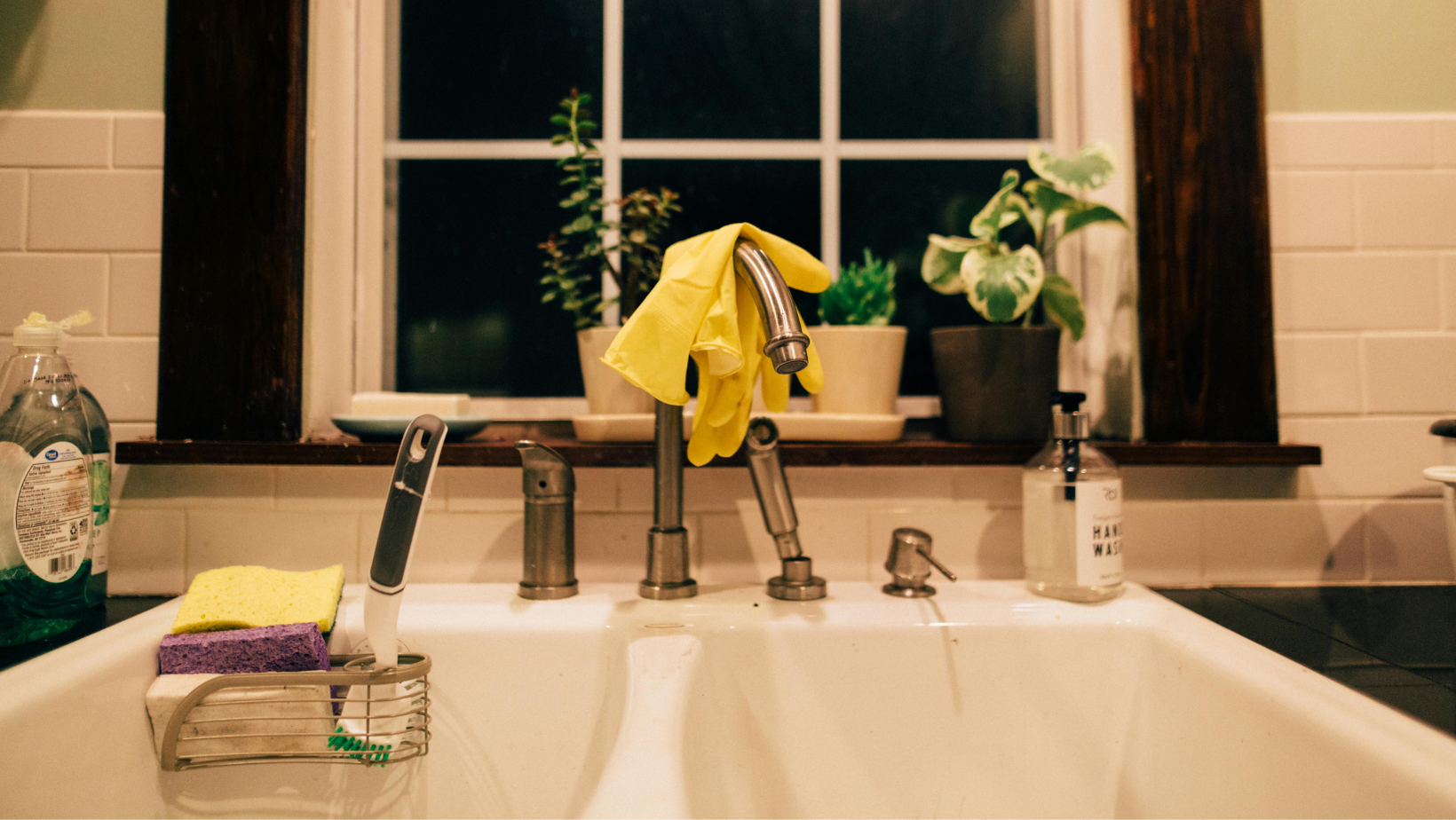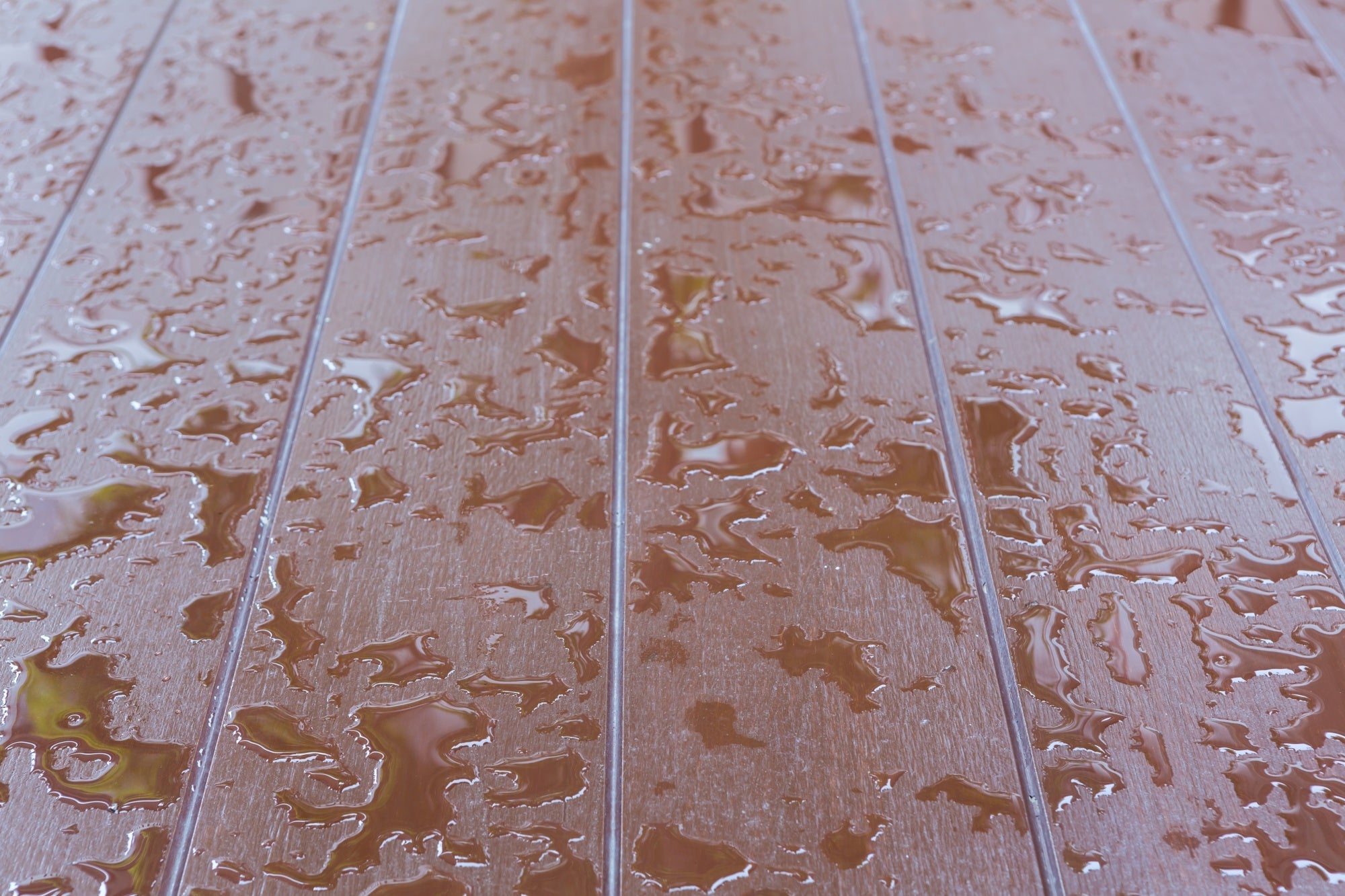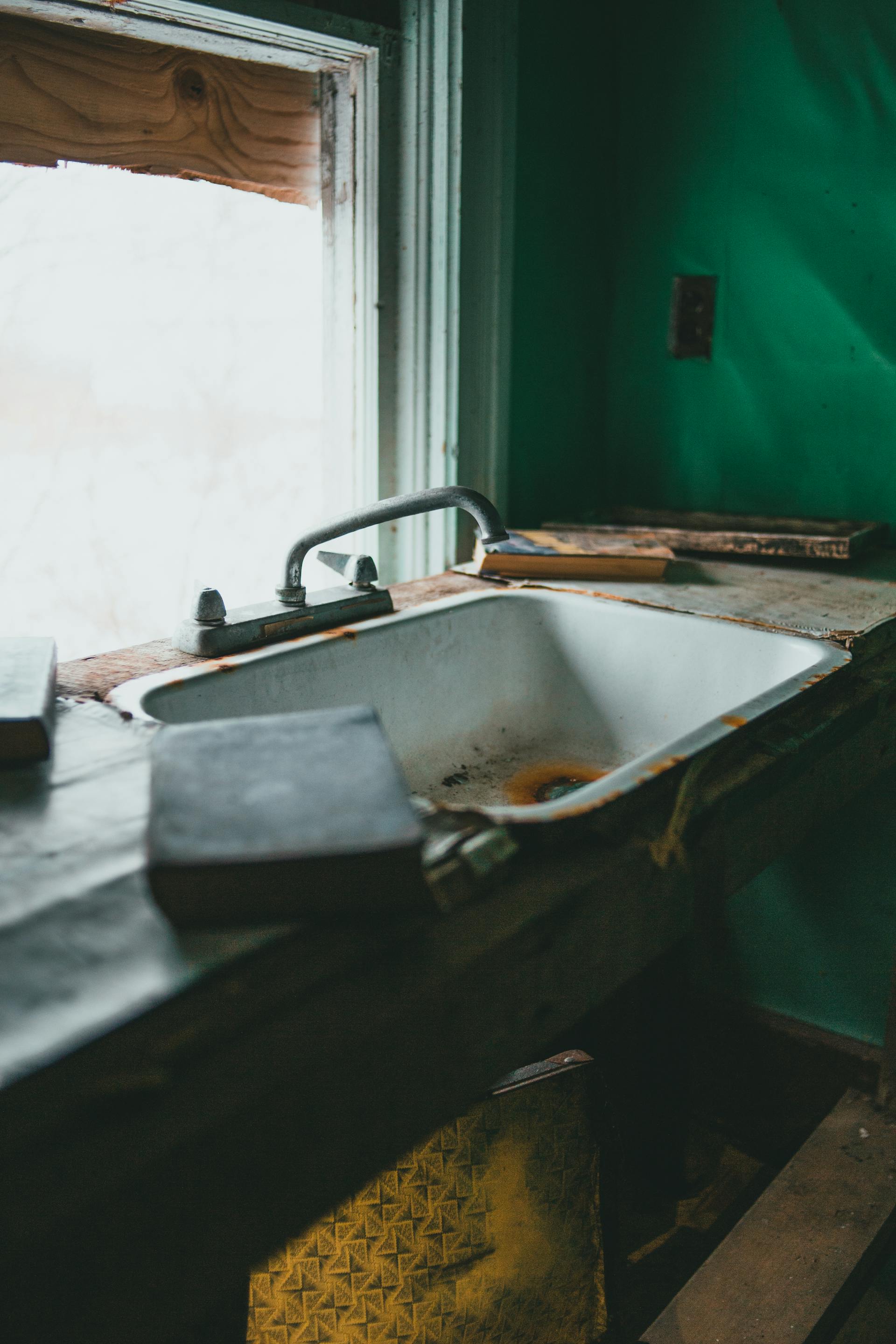Keeping your kitchen sink clean and disinfected is essential for maintaining a healthy and hygienic home. A dirty sink not only looks unsightly but can also harbour harmful bacteria and germs that may affect your family’s well-being.
Your kitchen sink is more than just a place to wash dishes; it's the heart of your kitchen, handling the hustle and bustle of everyday Aussie life. If there’s one part of the kitchen that demands regular maintenance but is often overlooked, it’s the kitchen sink. Keeping it clean not only enhances hygiene but also extends its lifespan and adds to your kitchen’s overall aesthetic.
Whether you have a stainless steel sink, ceramic basin, or composite sink, proper care is vital for maintaining its appearance and functionality. In this guide, we’ll ensure you're cleaning your kitchen sink the right way, offering detailed tips to keep it spotless and working efficiently.
Why Proper Sink Maintenance Matters
Keeping your kitchen sink well-maintained is essential for ensuring a clean, efficient, and healthy kitchen environment. Your kitchen sink endures daily wear and tear, from dirty dishes and food scraps to harsh cleaning chemicals. Regular upkeep prevents the buildup of food particles, grease, and other debris, which can lead to unpleasant odors, slow drainage, and even pipe corrosion.
Additionally, neglected sinks can become breeding grounds for bacteria and pests, posing significant health risks. Failing to maintain your sink can also result in more serious plumbing problems over time, leading to costly repairs and we don't want that here. By practicing good kitchen sink care, you’re not only protecting your investment but also ensuring the cleanliness and hygiene of your kitchen space.
Imagine how much better your kitchen will feel with a sparkling clean sink that complements your benchtops and cabinets, especially with quality products from Sinks and Bowls that are built to last. Now that we understand the importance of proper sink maintenance, let's explore effective methods to achieve it.
Daily Care for Kitchen Sinks: Keep Them Shining
Stainless Steel Sinks
Stainless steel sinks are popular in many Australian homes due to their durability and sleek appearance. Stainless steel sinks are resistant to rust and stains but can develop scratches over time. However, they’re prone to scratches and water spots if not cared for properly.
Daily Cleaning:
- Rinse your stainless steel sink with warm water after each use to remove food particles and residue.
- Always dry the sink after washing to prevent water spots.
- Clean the sink at least once a week using a soft cloth or sponge with mild dish soap.
- Use only non-scratch cleaning pads; avoid harsh scrubbing pads or abrasive cleaners to prevent damage.
- For a gentle scrub, use baking soda. Avoid cleaners containing bleach or chloride. If used, rinse immediately to prevent corrosion.
- Apply stainless steel cleaner or polish with a non-abrasive cloth or sponge, working with the grain to avoid scratches.
- Use a stainless steel polish once a week to restore shine and maintain resistance to staining.
- Stainless steel sinks may scratch from everyday use, but these scratches will blend over time, creating a unique finish.
Maintenance Tip:
- Always dry the sink after washing up to prevent water spots and mineral buildup, which can dull the surface.
Ceramic Sinks
Ceramic sinks add a touch of elegance to any kitchen, but they require gentle care to prevent chipping and scratching. Ceramic sinks are durable and resistant to high temperatures but can chip or crack if heavy objects are dropped on them.
Daily Cleaning:- Wipe down your ceramic sink with warm, soapy water after each use.
- Use a soft sponge to avoid scratches.
- Always rinse thoroughly after cleaning and dry with a soft cloth to restore its shine.
- For stubborn stains, use a mixture of baking soda and vinegar.
- Avoid using bleach, as it can damage the glaze and dull the surface.
- Avoid dropping heavy pots and pans into the sink, as ceramic can chip or crack.
- Use a rubber mat at the base of the sink for extra protection.
Composite Sinks
Composite sinks, made from granite or quartz, are known for their toughness and modern look. Nevertheless, they can lose their colour over time if not properly maintained.
Daily Cleaning:- Clean your composite sink regularly with hot, soapy water and a soft or microfiber cloth (e.g., E-cloth) to remove food debris.
- Always rinse the sink thoroughly after cleaning or preparing food to prevent buildup.
- Avoid leaving coffee grounds, tea bags, or other staining agents in the sink for extended periods, and rinse immediately to prevent discoloration.
- For stubborn stains, use a mixture of baking soda and vinegar.
- Avoid using bleach, as it can damage the glaze and dull the surface.
- Dry the sink after use to delay future buildup and prevent water spots.
- Occasionally, apply mineral oil to polish your composite sink and keep it looking rich and vibrant.
It's also a good idea to clean the sink more frequently if you have many people in your home, kids or pets, or if you prepare many meals at home. Cleaning the sink at least once a week is a good rule of thumb, but you may need to do it more often, depending on your usage.
Remember if the following advice has been followed then 'deep cleaning' should not be necessary. It should be seen as a last option after trying the above cleaning advice, repeatedly using these methods will alter the appearance of the sink and reduce its lifespan. You should start with the (first) least aggressive method.
In addition to the above steps, you should also be mindful of what you put down in your sink and be aware of the type of cleaner you use. Avoid abrasive or harsh chemicals that can damage the sink surface.
Best Products for Sink Care
When caring for your kitchen sink, using the right products can make all the difference. Here are some recommendations for top-notch sink care items:
- Baking Soda: A versatile, gentle abrasive that works for all sink types. Use it to scrub away grime without scratching the surface.
- Vinegar: Perfect for removing hard water deposits, especially in stainless steel sinks. It also helps neutralize odors.
- Stainless Steel Polish: Keep your stainless steel sink shiny and resistant to water spots with a dedicated polish.
- Rubber Sink Mats: These protect ceramic and composite sinks from chips and cracks when washing heavy items.
- Microfibre Cloths: Ideal for drying and polishing your sink after each use to avoid water stains and streaks.
Preventing Stains and Scratches: What You Need to Know
- Harsh scrubbing pads or abrasive powders can scratch stainless steel and ceramic surfaces. Stick to gentle options like baking soda or soft sponges.
- Leaving food residue in the sink overnight can cause stains, bad smells, and bacterial growth. Always rinse and clean your sink at the end of the day.
- Allowing water to air dry on your sink’s surface can lead to water spots, particularly on stainless steel sinks. Always wipe it dry after use.
- While bleach may seem like a good disinfectant, it can damage the glossy finish of ceramic sinks over time. Opt for non-bleach cleaners instead.
Daily Care for Kitchen Sinks: Keep Them Shining
Maintaining your kitchen sink is simple with the right routine. By following the steps outlined above, you can efficiently clean your sink and prevent the buildup of bacteria and germs.
Cleaning and disinfecting your kitchen sink is essential to maintaining a healthy and hygienic home. Remember to make it part of your routine by wiping down the sink after each use, avoiding grease and food scraps in the drain, and using safe cleaning products.
A clean sink not only promotes a healthy living environment but also enhances the kitchen's overall appearance and prolongs the life of your sink and disposal. Whether it’s a sleek stainless steel model or a stunning ceramic piece, Sinks and Bowls has the perfect solutions to keep your sink looking its best.
At Sinks and Bowls, we’re committed to helping you create a stylish and functional home with our quality kitchen sinks. Make an informed decision and enjoy the benefits of kitchen sinks that will help complement your modern kitchen perfectly.
Frequently Asked Questions (FAQs) About Kitchen Sink Maintenance
1. How often should I clean my kitchen sink?
For best results, clean your kitchen sink daily, especially after meal prep or washing dishes. This will prevent the build-up of food, grease, and stains.
2. Can I use vinegar on a stainless steel sink?
Yes, vinegar is excellent for removing hard water stains and deposits. Just be sure to rinse thoroughly and dry the sink afterward to prevent any acidic damage.
3. How do I remove rust spots from my sink?
For stainless steel sinks, use a non-abrasive cleaner like baking soda and a soft sponge. Rub gently in the direction of the steel’s grain to remove rust spots.
4. Is it safe to use lemon juice in my sink?
Lemon juice is safe for most sink materials but can cause discoloration in composite sinks if left too long. Use it sparingly and always rinse well.
5. How do I prevent scratches in my sink?
Use a rubber sink mat when washing heavy pots and pans to protect the surface of your sink from accidental scratches and chips.
Discover efficient proper kitchen sink care from Sinks and Bowls!






Share:
From Style to Function: A Guide to Stylish and Functional Tapware
5 Signs It’s Time to Replace Your Kitchen Sink